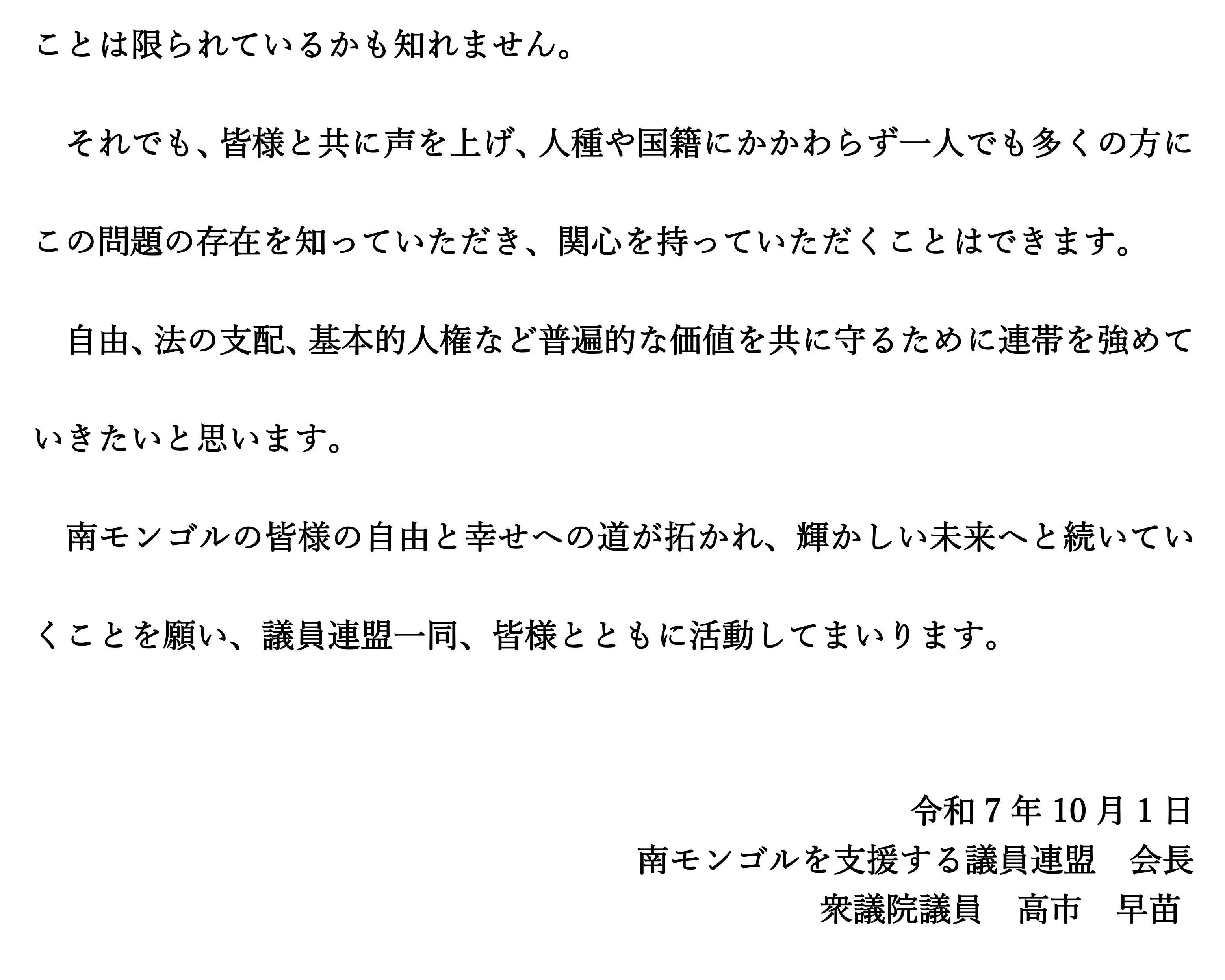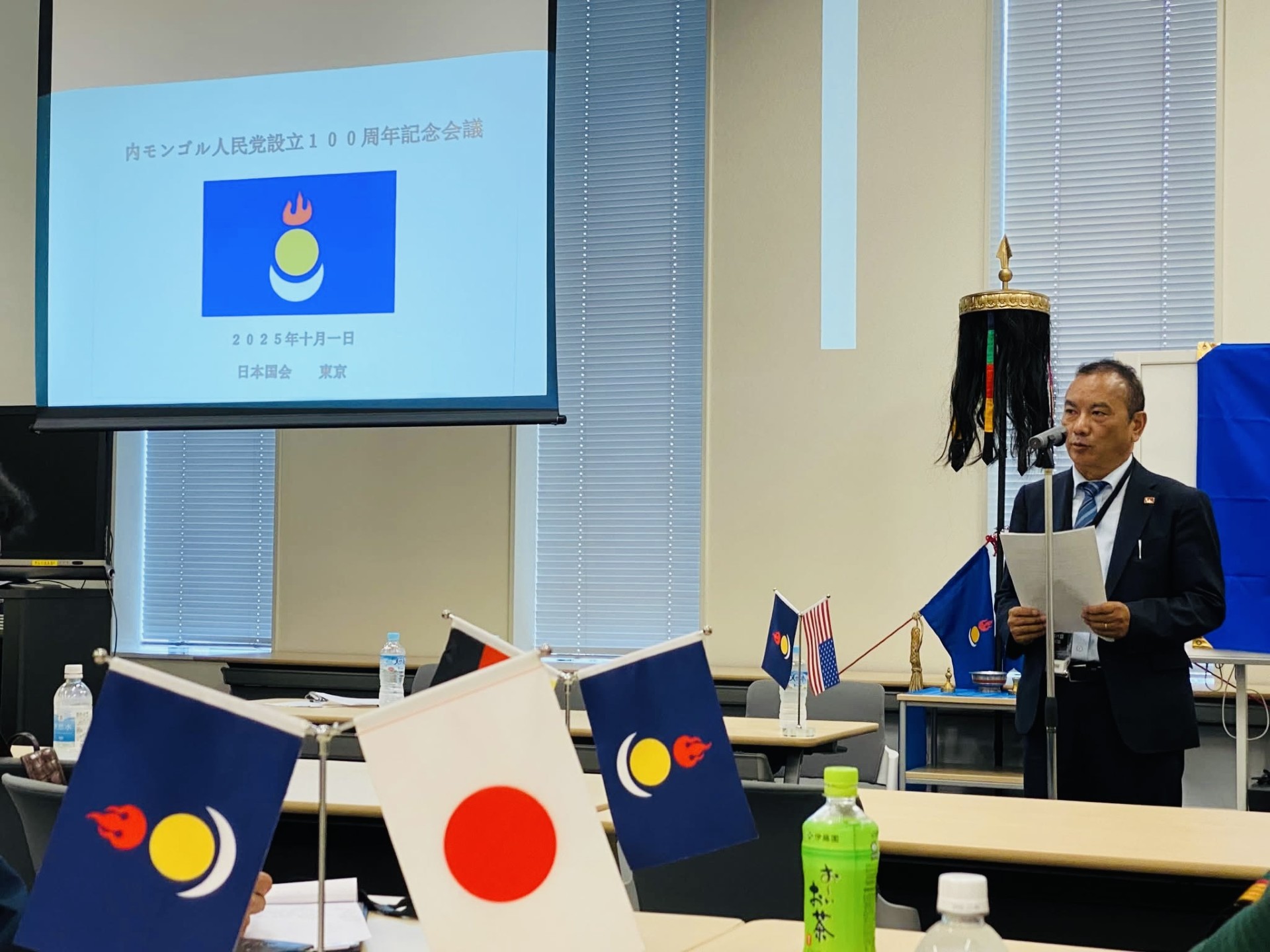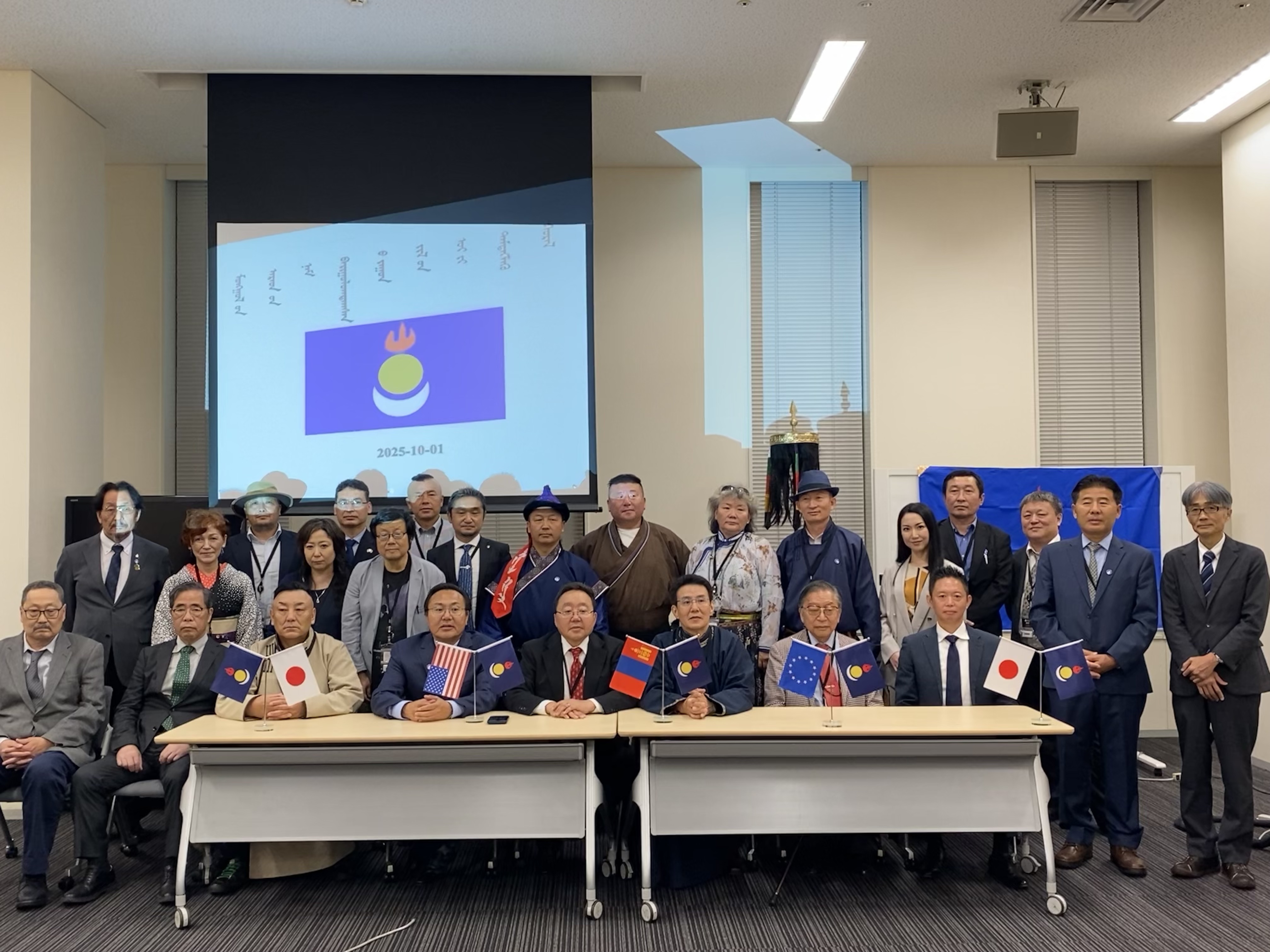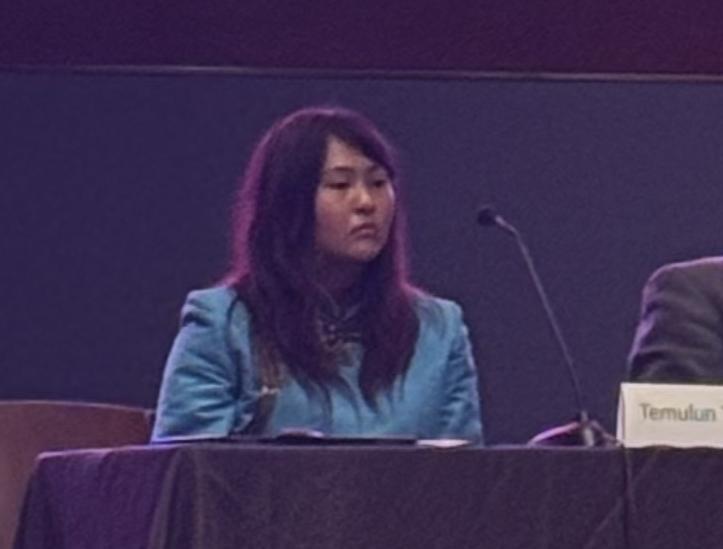 |
 |
 |
 |
To gather and distribute
information concerning Southern (Inner) Mongolian
human rights situation and general human rights issues;
|
 |
To promote and protect ethnic
Mongolians’ all kind of rights such as basic human rights,
indigenous rights, minority rights, civil rights, and
political rights in Southern Mongolia;
|
 |
To encourage human rights and
democracy grassroots movements in Southern Mongolia;
|
 |
To promote human rights and
democracy education in Southern Mongolia;
|
 |
To improve the international
community’s understanding of deteriorating human rights
situations, worsening ethnic, cultural and environmental
problems in Southern Mongolia;
|
 |
Ultimately, to establish a
democratic political system in Southern Mongolia.
|
|
|
 |
 |
 |
|
Japanese Ruling Party Leader Sanae Takaichi's Message to the
Inner Mongolian People's Party 100th Anniversary Angers China |
|
|

|
...
On
October 1, 2025, the Conference to Commemorate the
100th Anniversary of the Founding of the Inner
Mongolian People’s Party was held at the Japanese
Parliament Senate Building on the occasion of
China’s National Day, as a deliberate gesture to
send a message to the Chinese government. The
conference was hosted by Mr. Khuvisgalt Khereid,
President of the Inner Mongolian People’s Party, and
attended by distinguished guests, including His
Excellency Elbegdorj Tsakhia, former President of
Mongolia, as well as Japanese parliament members,
representatives, scholars, and human rights
advocates from Japan and abroad. Ms. Sanae Takaichi,
President of the Liberal Democratic Party (LDP) and
President of the Japanese Parliamentary Alliance for
Supporting Southern Mongolia, sent a special
congratulatory message to the event. In her message,
Ms. Takaichi stated, “Looking back on history,
countless Mongolian people have continued their
struggle, enduring unimaginable hardships and
sacrifices to preserve their language, history,
culture, and values, and to uphold the pride of
their nation.” She also expressed strong concern
over the continued human rights violations in
Southern Mongolia under Chinese Communist Party ....
|
|
<details>... |
|
Representative Dr. Tsewang Gyalpo Arya Participates in the
Mongolian Conferences in Tokyo |
|
|

|
... Konnichiwa! Tashi Delek! Sain bainu! I am Arya,
the representative of the Liaison Office of His Holiness the
Dalai Lama in Japan. I am deeply honored to have been
invited to participate and talk at this event, the “100th
Founding Anniversary of the Inner Mongolia People’s Party
1925-2025”. I extend my heartfelt gratitude to the
organizers. As you are all aware, Mongolia and Tibet share
deep historical, political, religious, and cultural ties.
From the 7th to the 9th century, Tibet was a militarily
powerful nation. However, when Buddhism arrived from India,
Tibet gave up wars and invasions, transforming into a nation
that valued peace, love, compassion, and non-violence based
on the teachings of the Buddha. It became a peaceful country
with a government aligned with religious principles. In the
13th century, Genghis Khan of Mongolia and his descendants
ruled over much of Asia and Europe. Mongolia was a military
state possessing immense power around that time. The Mongol
emperor Kublai Khan established the Yuan Dynasty in 1271 and
conquered China by 1279. During this period, while Mongolia
was militarily powerful, Tibet was spiritually and
religiously influential. Consequently, a special
relationship of “Priest and Patron” ....
|
|
<details>... |
|
Conference Commemorates the 100th Anniversary of the Founding of
the Inner Mongolian People’s Party at the Japanese Parliament
Building |
|
|

|
... A congratulatory message was delivered on behalf
of the Parliamentary League for Supporting Southern
Mongolia, chaired by Hon. Sanae Takaichi, Member of the
House of Representatives.In her message, Hon. Takaichi
stated, “Wishing that the path to freedom and happiness for
all the people of Southern Mongolia will open and lead to a
bright future, the members of our parliamentary league will
continue to work together with you.” IMPP President Mr.
Khuvisgalt Khereid delivered the keynote address, recounting
the century-long history of Southern Mongolia’s struggle for
freedom and reaffirming the Party’s unwavering commitment to
achieving the independence of Southern Mongolia. A special
highlight of the event was the presence of His Excellency
Elbegdorj Tsakhia, Former President of Mongolia, who gave a
powerful and inspiring speech. In a special session
titled “Conversation with the Former President of Mongolia”,
hosted by Mr. Enghebatu Togochog, Director of the Southern
Mongolian Human Rights Information Center (SMHRIC) based in
New York, President Elbegdorj called on all Mongolians
worldwide to unite in defense of their culture, language,
identity, and their rights to national freedom.
He emphasized ....
|
|
<details>... |
|
Temulun
Togochog speaks at the International Religious Freedom
conference on Capitol Hill |
|
|

|
...
My name is Temulun
Togochog. I am an
18-year old Southern
Mongolian-American
activist working with my
father Enghebatu
Togochog whom some of
you may know. I was born
and raised in the United
States after my parents
came here seeking
political asylum. I
stand before you today
to use my privilege as
an American born citizen
to speak on behalf the
voiceless, the Southern
Mongolians. Also known
to the world as “the
People of Inner
Mongolia”, we are a
people whose religious
freedom, cultural
heritage and very
identity are under
relentless assault. For
thousands of years,
Mongolians have lived on
the vast steppe guided
by two intertwined
spiritual traditions:
Buddhism and shamanism.
We are a Buddhist nation
deeply shaped by the
teachings of compassion,
wisdom, and non-violence. At the same time, we have
preserved our ancient shamanic practices, which root
us to the land, to our ancestors, and to the spirits
of nature. Shamanism promotes a world view that
emphasizes the reciprocal relationships with the
natural world and finds guidance and spirits of
nature and our ancestors whiles Buddhism teaches
altruism and selflessness. This blend of Buddhism
and shamanism is not just a religion for us. It is
the very foundation of our world
.... |
|
<details>... |
|
 |
|
|
|





